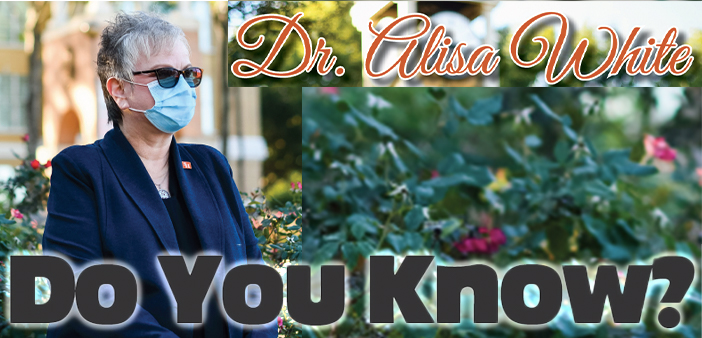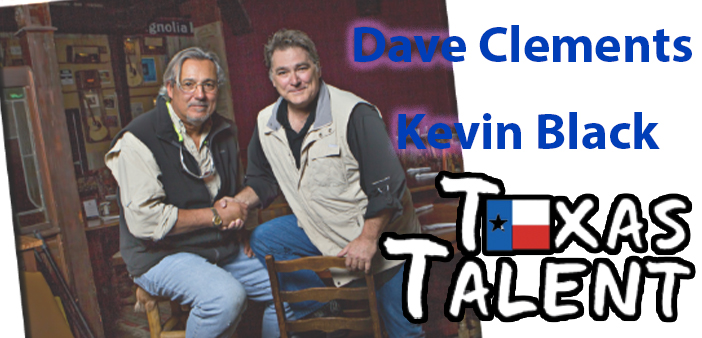Photos by Libby Rogers

What do 9,000 empty milk jugs, butterflies, herb gardens in prisons, and a recycling cemetery have in common? They all intersect at a half-acre tract of land off FM 75 in Huntsville. A hidden gem of this town sits behind the Texas A&M AgriLife Extension Office at 102 TamRoad. Out of this office, the Walker County Master Gardeners program contributes in numerous ways to this community. “The Master Gardeners Program is a marriage between a state university system and the county government. An extension agent in Seattle, Washington couldn’t answer all the horticulture calls he was receiving daily and complete all the other jobs he had to do. His answer to this problem was to train individuals to respond to the questions about growing plants, fighting pests, landscaping, and more,” Rhonda Hanks, a longtime Master Gardener shared.

Nestled behind this county office are places one would expect to find in an area nurtured by “green-thumbs,” and a few unique features as well. “All the walkways are made of Trex® [recycled plastic and wood byproducts]. The six benches each took 1500 recycled milk cartons to make. The storage buildings are made from recycled door panels. When I first started, all that was here was the Rose-Star Bed and the Butterfly Bed,” Hanks pointed out. The tour now consists of an herb area, an outdoor learning center, a hoop house, a tank for rain-water-harvesting, a bed for plants native to Texas, a fruit tree area, a composting area, and a root cellar in which to store fruits and vegetables without refrigeration. “The Recycling Cemetery is used to educate people on how long it takes for things to decompose. We often will cover up the answers and ask how long it takes for these items to turn back into nothing.
“All the food grown in the vegetable garden is donated back to the community: to senior citizens, The Good Shepherd Mission, the county organization that assists adults with disabilities, etc.; this productive spot is educational for kids, and it is fun to watch children who have never eaten vegetables fresh from the garden. There is also a keyhole garden that is formed so you compost in the middle of it. This type of garden originated out of Africa,” Hanks commented.
Master Gardeners are set apart from other home gardeners by their special training in horticulture. In exchange for their training, persons who become Master Gardeners contribute time as volunteers, working through their cooperative Extension office to provide horticultural information to their communities. What does that look like in WalkerCounty? In 2019, this group presented 45 formal education programs which reached 2300 people; 28 programs specifically targeted youth, including an eight-day summer camp which focused on recycling, composting, soils and bugs. Currently, this nonprofit has 106 active volunteers with a total of 339 Master Gardeners that have been certified since Reggie Lepley, Walker County’s Extension Agent, started the program almost twenty years ago.

To be certified, one must complete 60 hours of classroom training from January through May and contribute 50 hours of volunteer time.“I think it is a wonderful thing. You take what you learn and give to the community. Everything we do–everything we generate–goes back to the community in one form or another. Last year, we had8600 combined volunteer hours (and that is with many not reporting their hours). Our local economic impact, factoring in the educational programs, is over $469,000,” Hanks offered. Over the years, they have also beautified the landscapes of the courthouse, storm shelter, and hospital. Providing scholarships to high school and college students is another way this group gives back to this growing area.

Interns who sign up to become Master Gardeners range in age from young 20s all the way up to people in their 90s. “There is a waiting list every year. We open registration in November every year. The first 24 who pay are in the class. The $150 fee covers an$80 textbooks, background checks (because we do work with children), classroom instruction lead by PhDs from A&M and SHSU as well as other Horticulturists and Specialists, and hands-on training,” Hanksimparted.
Annually, the Walker County Master Gardeners host a Spring GardenExpo. This year, the event will be held at the Walker County Fairgrounds on February 22 and 23. For a $3 donation for adults or $5 for birthdays, an individual receives access to a lineup of special speakers, vendors, an Ask-a-Master-Gardener Booth, and a Kids Zone booth. Their Spring Plant Sale, which is March 14, 2020, and the Fall PlantSale raise most of the funds that these avid green-contributors use to support Huntsville and the surrounding areas. There is also a Butterfly Festival in the fall season.
The Master Gardeners reach doesn’t stop at the walls which enclose offenders. Rhonda Hanks has been teaching a program called Herbs Behind Bars for the past 10 years.“TDCJ couldn’t figure out why some food at certain prisons weren’t very good in comparison to other units since they all get sent the same thing. They found out the ones that were good were growing herb gardens by the kitchens. By using these herbs, they were making better-tasting food. They also found out people they were putting in the kitchen had no idea how to prepare food. Out of this discovery, came two programs through Lee college: a culinary program and herbs Behind Bars. Seeds are sent to all 95 prison units. Each unit documents every step: how they planted the seeds, how they grew the seeds, how they prepped the beds, how much they harvest, what savings there were, etc. They document with pictures and stories. Every year in October, all the units send in the documentation in book form. They compete for who has the best herb garden. The collections are judged by certain criteria. The units are broken down into the categories of small, medium and large prisons. The units receive nice awards for first, second and third place,” Hankjoyfully mentioned.

Grow, Eat, Go takes the knowledge of the MasterGardeners into the elementary schools. They have helped to plant gardens on various campuses.“The students take the food they have grown inside. They learn to prep the food to eat. Watching students eat things like cauliflower, broccoli, and things they wouldn’t normally eat was a great experience,” Hanks said.
“We are here to help the community. We go to garden clubs, the Rotary club. I have done programs at the hospital about growing healthy food… So many people are interested in gardening at home and growing their own food. The“edible-yard” is the cool new thing,” Hanks expressed.“We get a lot of requests to help people find the right plants to plant, how to lay it out, how

to take care of the foliage, etc.”LEAF-PRO: Landscape Environmental Awareness Facility-Protection, Reduction, Outreach is the educational tag-line of the Walker County Master Gardeners. They truly exemplify and embody these words. Anyone wanting to know how to grow plants in the thick clay of Huntsville or have success in cultivating vegetations in sand and silt should peruse the Walker County MasterGardeners Facebook page for gardening tips, scheduled events, links to relevant information, and more.
• “Do I want to learn more about the culture and maintenance of many types of plants?”
• “Am I eager to participate in a practical and intense training program?”
• “Do I look forward to sharing my knowledge with people in my community?”
• “Do I have enough time to attend training and to complete the volunteer service?”
If an individual answered “Yes” to these questions, stop by the Master GardenersFacebook page and start your journey. Even if you cannot become a Master Gardener, stop by the Walker County, Texas AgriLifeExtension Office and take a stroll through the greenery, learn about being a good steward of our natural resources, soak in the beauty of the vegetation, and “stop and smell the roses” (in season of course).




